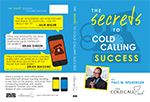RECIPROCITY: “The quality or state of being reciprocal, meaning to give back, usually in kind or quantity.”
Most people want to do the right thing. Or, at least they try. Wouldn’t you agree?
Even in the rough-and-tumble, sometimes take-no-prisoners world of sales, most folks you encounter are decent human beings.
Do someone a favor, and they’ll try to return it. Maybe not right away … but eventually.
People understand reciprocity. They appreciate someone going the extra mile for them. They feel valued, which fulfills a basic human need.
Reciprocity is (for most) the natural response. Return the favor, right?
Note the “for most” qualifier. Despite the best intentions of personal generosity and societal norms, a small minority of people still won’t “get it.”
They’re not bad people. They have reasons for their hesitation. You can learn them, and overcome.
Still, this scenario can be baffling – especially if you’re a sales rep who has been conditioning a prospect, with the aim of creating an opportunity.
What is conditioning? Well, as I’ve explained in recent posts, it’s carefully-orchestrated steps to build a relationship with a prospect. They start small. Grow to helping with their business. Graduate to some fun times, when you might meet their family or friends.
By this time, if you’ve followed the prescribed process, the prospect should want to reciprocate. Maybe they’ll engineer an opportunity for you. Perhaps they’ll introduce you to a decisionmaker, opening the door with a glowing referral of all you’ve done for them.
Or, maybe they’ll do nothing.
If so, you might be bewildered. Frustrated. Perhaps even angry.
You’ve spent a lot of time with this person (and perhaps money). You’ve delivered them value. You’ve proven your worth. What’s up?
Well, some people – again, a distinct minority – just need a nudge. Not a guilt trip, mind you, but a recap of your relationship. Diplomacy is key.
This strategy, to get fence-sitters off the dime, again uses a clear, deliberative strategy. Here goes:
1) Compliment: Build them up. Offer praise. “It’s been really great getting to know you.” “The company is doing really well under your leadership.” The natural response is to return the compliment … and ideally more.
2) Reminder: You’ve lent a hand. Remind them. “I’m following up on the contacts I sent you. These are the types of people you said you wanted to meet. Were they what you wanted?” If the answer is “Yes” – as you know it will be – respond with “Wonderful. Now that I know what you’re looking for, I’ll continue to seek high-quality referrals to fill your pipeline. How does that sound?” Uh, great – and there’s really no excuse for not offering to return the favor.
3) The Ask: Call this Last Chance Saloon. You won’t be confrontational – just direct. “It’s been great getting to know you, and I have learned a lot about your organization in the process. I think I can deliver value to your company. We haven’t spent a lot of time talking about my business and I’d consider it a personal favor if you can get me in front of Sally, the HR Director (or whomever is your targeted decisionmaker).”
As explained in my last post, the best sales are those you don’t have to ask for. Conditioning your prospects creates a fertile environment for “no ask” opportunities.
Why? Because people, by and large, are good. Most will appreciate what you’ve done for them, and willingly respond in kind.
Take an extra step for the very few who don’t. Make reciprocity work for you. That five-syllable word will create the conditions for your sales success.
Paul M. Neuberger is the President of The Starr Group, as well as the Founder/CEO of The Cold Call Coach. To contact Paul, call him at 414-313-8338 or reach out to him via e-mail at either pneuberger@starrgroup.com or coldcallcoachllc@gmail.com.



